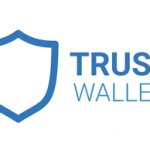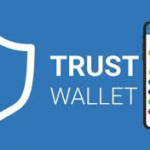How to Choose the Best Crypto Wallet: A Comprehensive Guide
In recent years, cryptocurrencies have gained significant popularity, attracting investors, traders, and enthusiasts from all walks of life. With the rise of digital currencies like Bitcoin, Ethereum, and countless altcoins, the need for secure storage solutions has never been more pressing. This brings us to the essential topic of crypto wallets. This article aims to provide a comprehensive guide on how to choose the best crypto wallet, delving into different types of wallets, their features, security measures, and what factors to consider based on your individual needs.
### Understanding Crypto Wallets
First and foremost, it is vital to understand what a crypto wallet is. In essence, a crypto wallet is a software program or a physical device that allows users to store and manage their cryptocurrencies. Unlike traditional wallets that hold physical cash, crypto wallets contain private and public keys which facilitate transactions on the blockchain. The public key is akin to an account number, which others can use to send cryptocurrency to you, while the private key is a secure password that must be kept confidential, as it grants access to your digital assets.
### Types of Crypto Wallets
Crypto wallets can be broadly categorized into two main types: hot wallets and cold wallets.
#### Hot Wallets
Hot wallets are online wallets that are connected to the internet. They are user-friendly and convenient, ideal for frequent transactions. Examples of hot wallets include:
1. **Web Wallets**: Accessible through web browsers, these wallets allow users to manage their cryptocurrencies online. Services such as Coinbase and Binance offer web wallets, making it easy to trade and access funds from anywhere.
2. **Mobile Wallets**: These are applications that can be downloaded on smartphones. They offer the convenience of managing cryptocurrencies on the go. Popular mobile wallets include Trust Wallet and Mycelium.
3. **Desktop Wallets**: These wallets are installed on a personal computer and provide a secure environment for managing cryptocurrencies. Examples include Electrum and Exodus. Desktop wallets can offer advanced features such as multi-signature support.
While hot wallets are convenient, they come with certain risks. The fact that they are connected to the internet makes them susceptible to hacking and phishing attacks. Thus, they are best suited for users who engage in frequent transactions and hold relatively small amounts of cryptocurrency.
#### Cold Wallets
Cold wallets are offline storage options that provide enhanced security. They are not connected to the internet, making them less vulnerable to cyber threats. The primary types of cold wallets include:
1. **Hardware Wallets**: These are physical devices that securely store your private keys offline. Well-known hardware wallets include Ledger Nano S and Trezor. They offer an extra layer of security with features like PIN codes and recovery options.
2. **Paper Wallets**: A paper wallet consists of a printed piece of paper containing your public and private keys. This method is inexpensive and highly secure if generated correctly. However, users must ensure they keep their paper wallets safe and protected from physical damage and loss.
Cold wallets are ideal for long-term investors who prefer to hold and store their cryptocurrencies securely. They are less convenient for day-to-day transactions but provide peace of mind against online threats.
### Factors to Consider When Choosing a Crypto Wallet
Choosing the best crypto wallet depends on various factors that align with your personal preferences, investment strategy, and security needs. Here are some critical considerations:
#### 1. **Security Features**
Security should be your top priority when selecting a crypto wallet. Look for wallets that offer robust security features such as two-factor authentication (2FA), multi-signature support, and strong encryption. Hardware wallets generally offer the highest level of security, while software and web wallets may have varying levels of protection.
#### 2. **Type of Cryptocurrencies Supported**
Not all wallets support every cryptocurrency. If you plan to diversify your investment portfolio by holding various cryptocurrencies, ensure that the wallet you choose supports the coins you wish to store. Some wallets focus on specific coins, while others, like Exodus, support a broader range of cryptocurrencies.
#### 3. **User Experience**
User experience is crucial, especially for newcomers to the crypto space. The wallet’s interface should be easy to navigate, with clear instructions for sending and receiving cryptocurrencies. A complicated interface may lead to mistakes, especially in the high-stakes world of crypto trading.
#### 4. **Backup and Recovery Options**
A reliable wallet should have options for backup and recovery. Many wallets will prompt users to create a recovery phrase or seed phrase during the setup process. This phrase allows users to recover their assets in case of loss or theft. Ensure that the wallet you choose provides this option and that you securely store your recovery phrase.
#### 5. **Development Team and Community Support**
The credibility of the wallet’s development team plays a crucial role in its reliability. Research the team behind the wallet and look for community feedback. Established wallets often have active communities that can provide support, share experiences, and report any issues.
#### 6. **Fees**
Different wallets come with varying fee structures. Web and exchange wallets may charge withdrawal fees, while some hardware wallets may have an upfront cost. Analyze the fee structure and how it aligns with your trading behavior. If you intend to make many small transactions, high fees can diminish your profits.
#### 7. **Regulatory Compliance**
With the growing regulatory scrutiny on cryptocurrencies, it is essential to choose a wallet that complies with laws in your jurisdiction. Some wallets offer features that adhere to local regulations, providing an additional layer of security and reliability.

### Popular Crypto Wallets: A Brief Overview
Here are some widely recognized crypto wallets that cater to different user needs:
#### 1. **Coinbase Wallet**
Coinbase Wallet is a user-friendly hot wallet that integrates seamlessly with the Coinbase exchange. It supports a variety of cryptocurrencies and offers built-in features for easy buying and selling. Its solid security features and intuitive interface make it an excellent choice for beginners.
#### 2. **Ledger Nano S and Nano X**
Ledger’s hardware wallets are among the most popular in the industry. They support a wide range of cryptocurrencies and provide an exceptionally secure way to store assets offline. The Nano X even features Bluetooth compatibility for mobile use, marrying convenience with security.
#### 3. **Trezor**
Trezor is another esteemed hardware wallet that is known for its security features and simplicity. It connects to your computer and allows for easy transaction management. Trezor also has a strong track record of security and user trust.
#### 4. **Exodus Wallet**
Exodus is a desktop and mobile wallet known for its beautiful design and user-friendly interface. It offers a built-in exchange feature, enabling users to swap cryptocurrencies seamlessly. However, being a hot wallet, it may pose some risks when compared to cold storage options.
#### 5. **Trust Wallet**
Trust Wallet is a mobile wallet that has gained popularity due to its simple interface and multi-coin support. It is also the official wallet of Binance and offers users easy access to decentralized applications (DApps).
### Conclusion
Choosing the best crypto wallet ultimately boils down to understanding your individual needs, investment strategy, and security requirements. By carefully considering the factors outlined above—security features, types of supported cryptocurrencies, user experience, backup options, and more—you can select a wallet that meets your unique circumstances.
Whether opting for the convenience of a hot wallet for daily transactions or the enhanced security of a cold wallet for long-term storage, proper due diligence is key. Remember that securing your cryptocurrency assets is not just about the wallet you choose, but also about your practices and vigilance. With knowledge comes power, and being informed about your options will help you navigate the complex yet exciting world of cryptocurrencies securely and efficiently.

